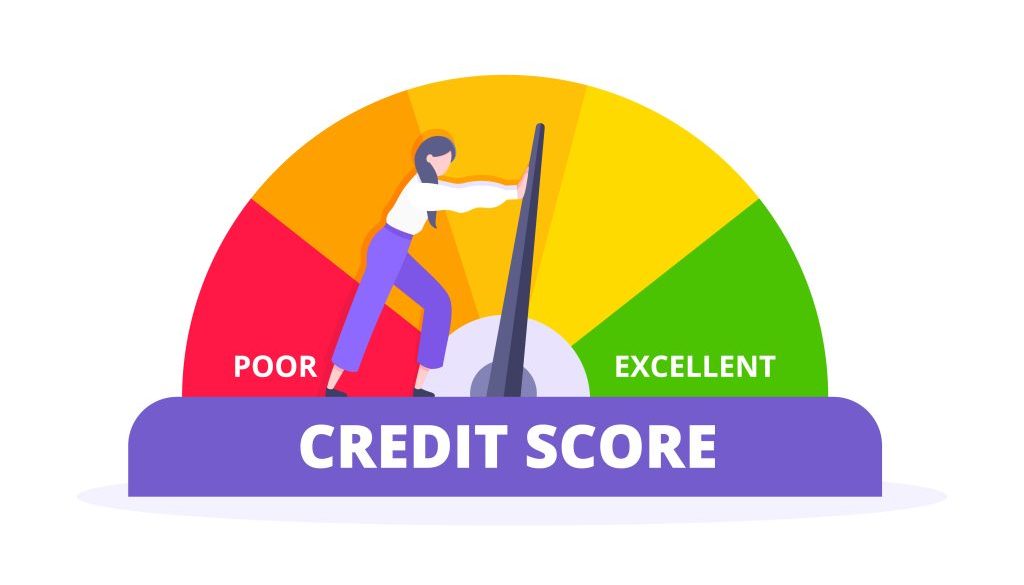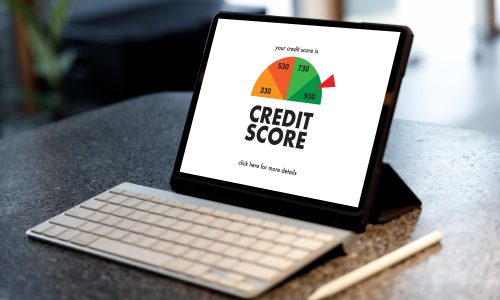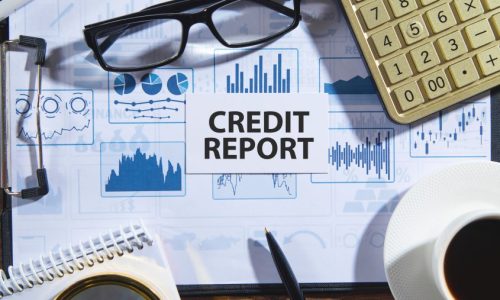10 Ways to Boost Your Credit in 2023

In the preceding fiscal year, the market witnessed a surge in prices alongside a series of interest rate escalations, collectively exerting heightened strain on most households. So it’s likely that both your budget and your ability to borrow money become more constrained in 2022. Therefore, you should expect that interest rates on charge cards, unsecured loans, and home mortgages will all increase as a result.
Fortunately, implementing strategic measures to enhance your creditworthiness can effectively mitigate the expenses associated with borrowing money. In light of the year that follows, it is imperative to acknowledge the significance of your credit score in determining the feasibility of achieving your financial objectives, as regardless your financial standing, recognizing the key role that your credit score plays cannot be understated.
A favourable credit standing is a FICO Score over 670. A higher credit score will grant you increased access to the most advantageous and cost-effective loan and credit card alternatives. A favourable credit score can provide ancillary benefits, such as facilitating the process of securing a rental property.
So here are 10 strategies you may use in 2023 if you’re serious about improving your credit score.
1. Prepare To Start Paying Back Federal Student Loans
Since the onset of March 2020, borrowers of federal student loans have been granted a temporary exemption from their monthly repayment obligations, with the added benefit of interest rates being effectively reduced to 0%. The current termination date for the forbearance period is slated for the summer of 2023, contingent upon the resolution of uncertainties pertaining to federal waivers for this kind of loans.
For the moment, the current situation regarding relief from educational debt remains shrouded in ambiguity, but it is imperative to stay updated on the latest developments regarding loan forgiveness by frequently checking the Federal Student Aid website of the U.S. Department of Education. In addition, it is advisable to subscribe to email notifications regarding information on federal student loans.
Payment history is unequivocally the paramount determinant of your credit score. Mitigate the potential negative impact on your credit score resulting from a past-due student loan payment by proactively ensuring your readiness for the reinstatement of payment obligations. Conduct a thorough assessment of your budgetary allocation to ascertain the potential strain that the recommencement of payments may impose on your financial standing.
Don’t hesitate to contact your loan service provider and inquire about income-driven repayment plans if you’re worried about your capacity to make monthly loan payments.
2. Automatic Bill Payment Is A Strategy That Can Significantly Enhance Your Financial Management Capabilities
This way, you will be able to streamline your bill payment process, ensuring timely and consistent payments while minimizing the risk of late fees or penalties.
It is imperative to maintain a sufficient balance in your checking account to adequately cover each monetary obligation, thereby mitigating the risk of incurring an overdraft. You may put your energy into working on other aspects of your credit without worrying about a sudden drop in score because of a neglected payment.
3.Allocate Funds Towards Reducing Outstanding Balances
This strategy entails making regular payments towards existing debts in order to decrease the overall amount owed.
Second only to payment history in determining your credit score, credit usage is based mostly on your revolving debt to credit ratio. In the fiscal year of 2021, there was a discernible decline in the mean credit card liabilities borne by consumers, which consequently led to a decrease in their credit usage ratios. This has contributed to the upward trajectory of the average U.S. credit score, reaching an unprecedented peak of 714, marking the fourth year of successive growth.
It is advisable to prioritize the lowering of high-interest credit card balances as a primary financial objective, as the associated interest rates are typically higher compared to other forms of debt such as auto loans or federal student loans. By focusing on mitigating credit card debt, one can potentially save a significant amount of money that would otherwise be spent on interest payments.
By reducing the outstanding balances on your credit cards, you effectively demonstrate to prospective lenders your commendable credit management practices. Financial analysts recommend maintaining a credit utilization ratio that does not exceed 30% of your available credit limit, while the most favourable credit scores generally have a single-digit range.
4. Manage Debt Recovery
It is imperative to address this matter promptly and strategically in order to mitigate any potential negative impacts on your creditworthiness and overall financial status.
If you presently find yourself burdened with an outstanding debt that has been referred to collections, it would be prudent to explore the possibility of engaging in negotiations to potentially reduce the amount owed or alternatively, disputing the debt in the event that you suspect an error has occurred.
A debt that has entered the collections stage typically indicates an over-due of more than three months, prompting regular and ongoing contact from the debt collection agency in pursuit of repayment. While you have the legal right to request the debt collector to stop contacting you, it is in your utmost financial advantage to proactively address and resolve the outstanding debt in question. The debtor has the option to either settle the outstanding debt in its entirety or engage in a mutually agreed upon negotiation process with the creditor.
Neglecting to address the outstanding debt may result in adverse consequences, such as a detrimental impact on your creditworthiness and the possibility of legal action, ultimately culminating in wage garnishment or the enforcing of a lien on your assets.
5. Obtain a Credit-Builder Loan
For individuals seeking to establish or rehabilitate their creditworthiness, a prudent course of action would involve considering a credit-builder loan offered by a credit union. The borrower will be obligated to make regular, predetermined payments over a period ranging from six to 24 months. The funds will be deposited into a savings account, which will remain accessible to the borrower upon the completion of the loan tenure. During this interim period, it is worth noting that the lender will duly notify the credit bureaus of your punctual settlements, potentially bolstering your credit score.
6. Consider Applying For A Secured Credit Card
Getting a secured credit card is another tool you may use to improve your credit score. The customary practice entails the provision of a cash deposit, typically amounting to approximately $200, which subsequently takes the role of your credit limit (the possibility of furnishing a larger deposit to secure a more substantial credit line is available).
The credit card can be utilized in a manner similar to any other conventional payment method, with the deposit serving as a safeguard for the issuer against potential default on the outstanding balance. Secured credit cards may sometimes be converted to regular, unsecured credit cards if the user makes responsible use of the account.
7. Consider Becoming An Authorized User Of An Account
One viable strategy to enhance your creditworthiness is to consider becoming an authorized user on a credit card account held by a reliable and trustworthy family member or friend. The card will facilitate your ability to engage in transactions, while simultaneously ensuring that the card’s payment history is duly recorded and reflected in your credit report.
It is of utmost importance to carefully select a person whose creditworthiness will yield advantageous outcomes for your financial portfolio. You should coordinate payment for your purchases with the principal cardholder, since they will be in charge of paying off any remaining debt.
8. Address Any Potential Discrepancies Or Inaccuracies That May Arise In Your Credit Report
Safeguard your financial standing by undertaking the necessary steps to dispute such errors.
If you access AnnualCreditReport.com, you can obtain a free credit report from each of the three major credit reporting agencies. If you discover an error, such as a late payment that was incorrectly recorded in any of your reports, you have the right to dispute it with the credit reporting agency that noted it. Additionally, you may notify the relevant lender for a loan or credit card about the error, who may subsequently amend the data with the agencies. Addressing any possible concerns has the potential to positively impact your credit rating.
9. Receive Credit for Recurring Bill Payments
This can be a strategic move to enhance your financial profile and potentially improve your creditworthiness. By ensuring that your bills are paid in a timely manner, you demonstrate responsible financial behaviour, which boosts your credit score.
You may potentially raise your FICO Score by using Experian Boost to record on-time payments for services like phone, utility, and streaming subscriptions. Although the service is provided at no cost, it is important to note that its impact is limited solely to your Experian credit report and corresponding scores. On average, Experian Boost users experience a credit score enhancement of 13 points.
10. Don’t Close Your Old Accounts
From a financial perspective, it is generally advisable to maintain an open account for an old credit card, even if it is no longer actively utilized. The reason behind the positive impact on your credit scores is attributed to the advantageous combination of an extensive credit history and a substantial total credit limit. When you close off old accounts, the average age of your accounts will decrease, which will have the effect of lowering your overall credit limit as well.
The time frame for an account to be removed from your credit report, following a closure in a favourable state, spans several years. However, it is crucial to note that the impact on your credit utilization rate is promptly observed.
On the other hand, if you find yourself unable to meet the financial obligations associated with a credit card’s elevated annual fee, it may be wise to consider closing the account as a viable course of action. Alternatively, you can also explore the possibility of requesting the card issuer to transition the existing credit card to a version that does not impose any annual fees, if such an option is available.



